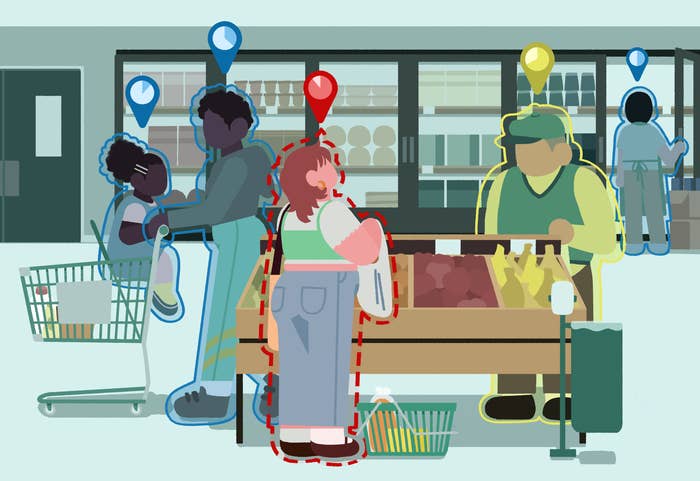
Boosters are back. Again. This week the FDA and CDC recommended a second booster dose of the Pfizer or Moderna COVID vaccines for people 50 and over and anyone who’s immunocompromised — for example, due to an organ transplant, conditions like cancer, or other reasons — if they are 12 or older.
If it’s been at least four months since you got your first booster shot, and you meet the criteria, you should probably get one, experts say. (Children under 12 aren’t eligible for boosters; meanwhile, kids under 5 still can’t get their first shots.)
Still, we know what you’re thinking: Seriously? Another shot? So BuzzFeed News spoke with several experts to better understand how booster protection changes over time and whether you really need that extra jab.
“I know everybody wants great news, that we can be done with COVID and everything's going to be fine, but that's not really true. There are a lot of things we don't know, and there are going to be a lot of times when people still have to take precautions,” said Dr. Emily Landon, an infectious disease expert and associate professor of medicine at the University of Chicago Medicine. “It's not a higher-risk time for people in most parts of the country right now, but that doesn't mean that there won't ever be another high-risk time.”
The good news is that evidence shows boosters work. People who got the first booster in addition to the two-shot vaccine were 12 times less likely to be hospitalized with COVID and 94% less likely to require the use of a ventilator or die than the unvaccinated, according to two CDC reports. Those with boosters were three times less likely to be hospitalized than those with just two doses of the vaccines.
How long after a COVID booster are you immune?
This is not a simple question to answer for a few reasons: Not enough time has passed since the first group of people got boosted, protection isn’t always easy to measure, and the response can vary from person to person. Plus, there’s still a lot we don’t know about the virus, particularly when new variants pop up.
But there is some early evidence that hints at what’s going on.
Protection against mild COVID increases to about 65% to 70% following a booster dose but drops to 45% to 50% after about two months, according to a report from the UK released in January. Protection against severe COVID lasts much longer. After a booster, protection against hospitalization stands at 92% and remains high at 83% two months later.
At four months, protection against hospitalization is 78%, according to a 10-state analysis released by the CDC in February. Of the more than 240,000 people in the study who visited an emergency room or urgent care for COVID, 46% were unvaccinated, 44% had two doses, and 10% had two doses plus a booster.
While there’s much we don’t know, it’s clear that vaccine protection wanes over time, and that a booster — as the name implies — can help. However, booster protection doesn’t last forever, dwindling a bit each month.
“We need to think of these as vaccines offering shorter-term protection than what a measles vaccine would do, for example, especially with more variants around,” Landon told BuzzFeed News.
The dominant version of the coronavirus in the US is a subvariant of Omicron called Omicron BA.2, which appears to be more contagious but not more severe, than other types of the virus. It was responsible for about 55% of all infections as of March 26. Meanwhile, infections in some regions, including parts of the Northeast, are rising as mask mandates and indoor vaccine requirements come to an end in many cities and states.
“All of us are probably going to need to update our protection at some point,” Landon said. “If protection is wearing off in older people, it's going to wear off in younger people eventually.”
Like all vaccines, there’s no such thing as 100% protection; vaccines are largely considered successful if they prevent hospitalizations and death, so you could still get COVID — it may just be milder.
Why does overall protection from COVID boosters wane over time?
Understanding why protection diminishes over time may help give you an incentive to roll up your sleeve a third, fourth, or fifth time (depending on what COVID vaccine you received first and whether you’re immunocompromised).
Vaccines generate two different kinds of immunity, Landon noted: short term, which mostly protects you against a germ the first time you encounter it, and long term, which works to keep you safe if infected again months or years later.
The first line of defense is made up of protective proteins called antibodies that block the coronavirus from infecting your cells. These can keep you from getting sick in the first place, but as is the case for other respiratory viruses, they may not provide long-lasting protection, Landon said. This can explain why you can catch COVID, the flu, or the common cold again months later, she said.
The second line of defense involves other parts of the immune system, including memory B cells. Some B cells produce antibodies that fight infection early on, albeit for a relatively short period of time, while others will become memory B cells that help your body recognize the virus (introduced either via vaccination or infection) months, even years, later and trigger an appropriate immune response, said Theodora Hatziioannou, a research associate professor at Rockefeller University in New York.
Memory B cells don’t play too big a role the very first time you encounter a germ because it takes a while for these cells to become activated and start making antibodies, Hatziioannou said. They do “wake up” in time to protect you from serious symptoms if you confront a germ again, though.
Hatziioannou and her colleagues posted a non-peer-reviewed study on Feb. 15 that found a booster dose not only increases the stockpile of memory B cells created by a second shot but also encourages the production of new ones that are all around more powerful and better at their job.
There are also T cells that contribute to this memory immune response, according to Alba Grifoni, an instructor and researcher at the Sette Lab at the La Jolla Institute for Immunology in California. These cells can recognize and kill the virus, limiting its spread in the body. They also recognize several parts of the virus, not just the spike protein it uses to enter cells, so they’re particularly good at detecting different variants.
The bad news, however, is that this immune memory is “running out of steam earlier than we thought” in older and immunocompromised people, according to Landon, because naturally, immune systems don’t function at their peak in these groups.
While many older adults feel like they're in tip-top shape, they are often at a disadvantage when it comes to fighting off COVID and other infections in terms of immune function.
“Modern medicine has been allowing individuals with what would have been really debilitating medical conditions to live perfectly normal lives,” Landon said. “It does accumulate a toll on your body. And while we are able to mitigate many of the effects of that, we're not really able to stop it from affecting your immunity.”
Younger people in good health tend to have stronger long-term immunological memory compared with older people, Landon said.
Do younger, healthy people need a second booster?
Boosters are not yet recommended for healthy people under 50, but that could change, particularly if a new, more dangerous SARS-CoV-2 variant starts to circulate.
While data are limited, scientists know the more the coronavirus spreads, the more likely it is to mutate into a potentially more infectious or deadly version of itself — and this is why both Hatziioannou and Landon agree it might make sense to boost young, healthy people a second time.
“What I'm concerned about is what the virus is going to become,” said Hatziioannou, who added that one booster “is a must,” but that she isn’t convinced a second is needed in this group at this time. “Is there a chance for a variant that will evade our immune responses even further?”
Vaccinated people are less likely to spread the virus to others (though it’s still possible) so Landon said double-boosting this population now may help prevent another surge in COVID cases.
“We need to be led a little bit by the precautionary principle,” she said. This is why the FDA and CDC went ahead and authorized additional boosters without a ton of evidence suggesting the need to do so, Landon added.
Some of the only evidence available on second boosters comes from Israel — where the extra jab was authorized in early January for high-risk people — among adults aged 60 and older. A non-peer-reviewed study found that 0.1% of people who got one booster died over the study’s 40-day period compared with 0.03% of those who got two boosters.
How safe is it to participate in public activities months after receiving a booster?
As mask mandates and other preventive measures disappear in many cities and states, and as your booster protection wanes, you may be wondering how safe it is to shop for groceries unmasked or eat indoors with others.
To be clear, what’s safe for you may not be safe for others. So deciding how to reenter or continue navigating public life is highly dependent on your own risks, as well as how prevalent COVID is in your community, said Landon, who thinks now is a more appropriate time to live mask-free given low caseloads across the US. (The CDC offers a COVID tracker by county so you can check your local area.)
“There are always going to be some individuals who should be wearing masks in some situations,” she said, but if you feel your risks are low, then consider the three C’s: closed spaces with poor ventilation, crowded areas, and close contact.
In general, wear medical-grade masks like N95s, Landon said, especially if sharing a space with unmasked or otherwise vulnerable people.
And remember: There are several people who don’t respond properly to COVID vaccines or who aren’t yet eligible for vaccination, like babies and toddlers. “As a society, we kind of owe it to them to be as careful as possible,” Hatziioannou said.
If you’re particularly worried about getting infected, you may be tempted to take an antibody test to measure your protection. But Landon said commercially available tests can’t tell you whether you have enough neutralizing antibodies (those that can actually prevent infection).
Could we reach a point where extra COVID boosters can’t offer more protection?
“It’s definitely possible that we’ll hit a ceiling,” Landon said, “like we vaxxed out.” But the mechanism behind this possibility isn’t well known.
Grifoni of the La Jolla Institute for Immunology said scientists are trying to understand if we’ll reach a COVID vaccine limit, or if this virus will require annual shots like the flu. “It’s very hard to say,” she said, but we do already know that for other viruses, three doses seem to be the magic number for triggering a long-term immune response, like the HPV, hepatitis A, and hepatitis B vaccines.
In the meantime, Omicron BA.2 is circulating. It’s too early to tell if it’s going to cause another devastating wave of infections and hospitalizations like in Europe, but it’s possible, Landon said, particularly in regions with lower vaccination rates.
“I certainly think anyone who wants to be protected should [get a second booster if eligible] and that individuals who haven't had any vaccines are at the absolute highest risk of COVID,” Landon said. “There is no evidence that COVID is getting easier or less dangerous, especially for people who are unvaccinated.”
